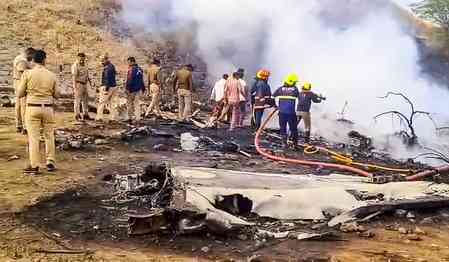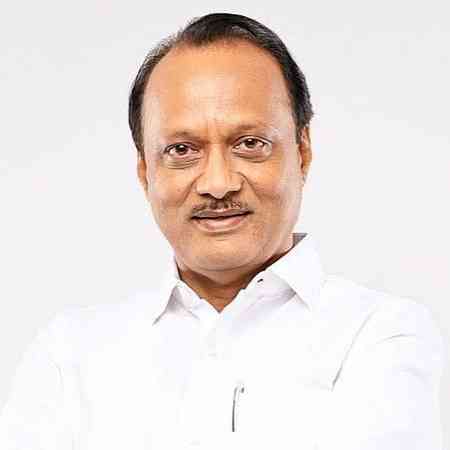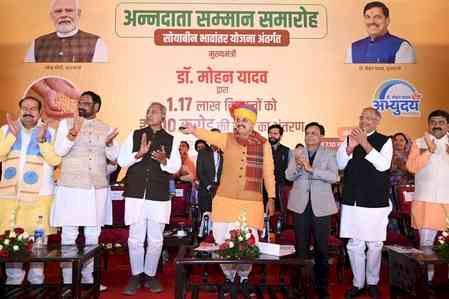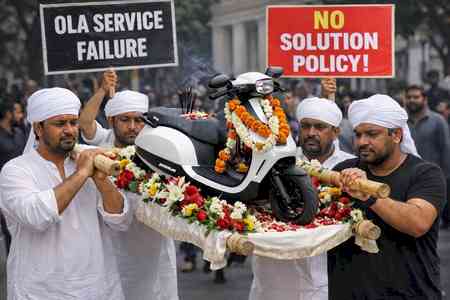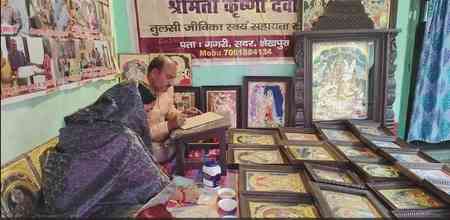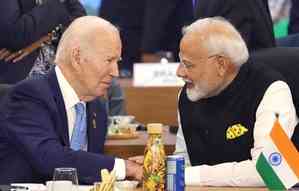Himachal women farmers scripting success, natural way
Empowered with knowledge through trainings and capacity-building workshops, women in Himachal Pradesh are emerging as a leader of change in natural farming -- an unprecedented transformation towards sustainable agriculture and the kind of change for the climate, biodiversity, and food security.
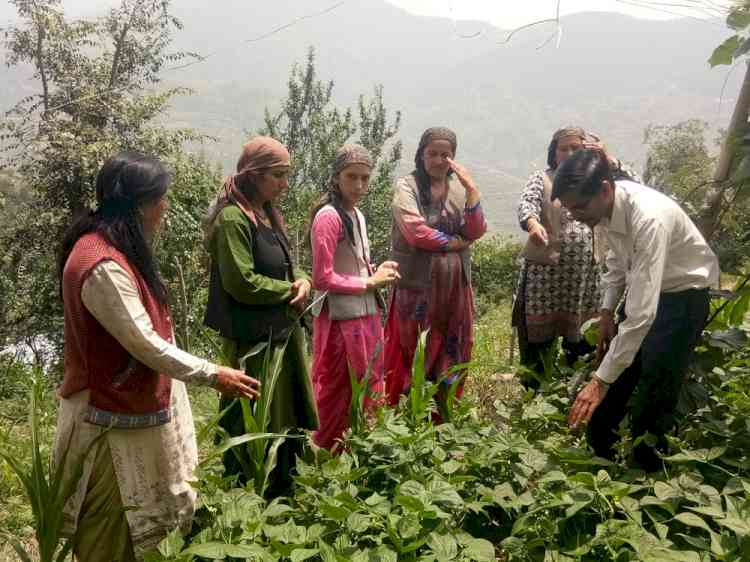
Vishal Gulati
Shimla, March 13 (IANS) Empowered with knowledge through trainings and capacity-building workshops, women in Himachal Pradesh are emerging as a leader of change in natural farming -- an unprecedented transformation towards sustainable agriculture and the kind of change for the climate, biodiversity, and food security.
Field visits indicate they are scripting success stories of low-cost, non-chemical and climate-resilient natural farming.
Not only they comprise more than half the total number of farmers who have adopted the natural farming technique, the women growers have taken up the task to compel her community to adopt a farming practice that is revolutionizing small-scale farming.
The farming is being promoted under state-run Prakritik Krishi Khushhal Kisan Yojana launched in 2018. The technique was named Subhash Palekar Natural Farming (SPNF) after Padma Shri awardee Subhash Palekar, who found that using chemical fertilizer and pesticides decreased the fertility of the soil and a drop in yield.
As per official figure, 1.68 lakh farmers have adopted this technique on 9,388 hectares, out of which 90,000 are women farmers.
Our story follows Anita Negi -- a young woman from the Kullu Valley. "Natural farming has brought a positive change in our lives and livelihood," was her first reaction.
"Our expenditure has reduced as we don't have to buy anything from the market. We make all the inputs at the farm itself by using the urine and dung of 'desi' cow. More importantly, the training under PK3Y and the exposure visits have given us a lot of knowledge and confidence too," she added.
Negi initially practiced natural farming in her kitchen garden. Later, she adopted it on three bighas, an orchard of apples with plantation of beans and mash. "I took to natural farming after the death of two family members due to cancer. I know the pain of losing your dear ones that could have been avoided with sustainable agriculture by shunning all sort of fertilizers and pesticides, or any other foreign element," explained Disha, a woman farmer from Bhanotu village in Mandi district.
"Now I am not only growing healthy produce but also creating awareness in my community to adopt natural farming so that the better health of both the farmers and the consumers is maintained," she said.
Prakritik Kheti Kisan Khushal Yojana (named PK3Y) Executive Director Rajeshwar Singh Chandel told IANS that the focus now is on training and capacity building of women farmers, given their significant role in agriculture and in society. "We are getting enormous response from the women farmers. We are mutually benefiting from this. It is empowering the women with knowledge and they are now helping natural farming evolve further with their spirited participation," he said.
Under PK3Y, training is being given to farmers in all blocks in the state and they are being taken to other farms for exposure visits. Many women farmer groups have also been formed to adopt it collectively.
A three-day women farmers workshop was organised to mark the International Women's Day last week at the Dr Y.S. Parmar University of Horticulture and Forestry in Nauni in Solan district, where 750 women farmers shared experiences and challenges.
They said many people laughed at them when they decided to shun decades of conventional agriculture that left themselves in debt traps owing to loans to meet the high cost of fertilizers and pesticides. However, most of them got silenced when they saw natural farming not only alleviates farmer debt, but also increases yields, while alleviating the impacts of climate change and land degradation.
The farmers are also being trained how to market their produce through farmer producer organisations after certification.
Pali Smith, the Block Technology Manager (BTM) with Agricultural Technology Management Agency (ATMA), a society of key stakeholders, in the tribal Pangi area in Chamba district said there was a risk of shifting to sustainable agriculture for one reason i.e. the area is snowbound and has one agriculture season in a year.
"I started natural farming along with my mother at home. We shifted from mono-cropping to inter-cropping in pea fields. When villagers heard about our success story, they have also adopted it on small land holdings like one-two bighas, resulting rise in income," an elated Pali told IANS.
She said three villages in Pangi, mostly women farmers, are now practicing natural farming and their target is to convert the whole block a natural way.
Chief Minister Jai Ram Thakur in his budget speech for 2022-23 announced that 50,000 acres would be brought under natural farming. The farmers will be registered and they will be certified as natural farmers in this fiscal, he added.
In Himachal Pradesh, where 10.84 per cent of land holdings are owned by semi-medium and medium farmers and just 0.30 per cent by large farmers, vegetable production is generating a revenue of Rs 3,500-4,000 crore annually and has emerged as an alternative economic activity in the horticulture sector.
As per the Agriculture Department, the total cost for conventional farming is nearly Rs 2.30 lakh per hectare, while the natural farming costs around Rs 1 lakh per hectare.
(Vishal Gulati can be contacted at [email protected])


 IANS
IANS 
